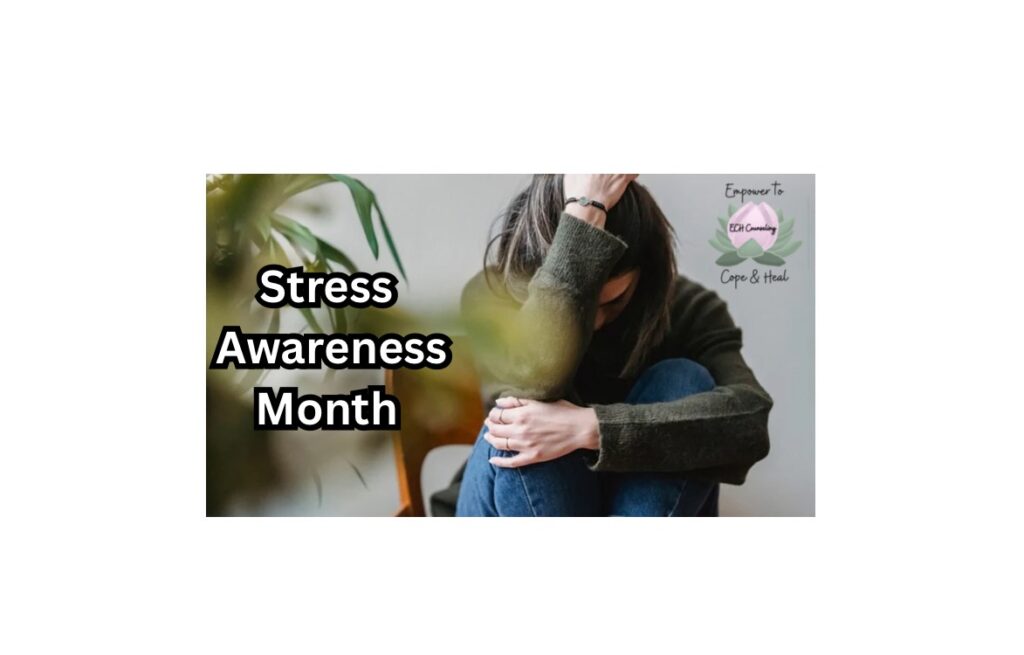Written by Jennifer Cox LCPC
In our fast-paced modern society, stress has become a common experience for many. While a little stress can be a motivating force, chronic stress can have detrimental effects on our overall health. Recognizing the signs and symptoms of stress is crucial in order to address it effectively before it escalates into more serious health issues. Let’s explore the various signs and symptoms of stress, helping you become more aware of your body and mind.
Understanding Stress
Stress is your body’s response to any demand or challenge, whether it’s related to work, home, finances, relationships, or other life experiences. While some stress can be beneficial, providing motivation and energy, prolonged or excessive stress can lead to a range of physical, emotional, and behavioral problems.
Physical Signs of Stress
1. Fatigue: Chronic stress often leads to feelings of exhaustion. You may find yourself feeling tired, even after a full night’s sleep.
2. Headaches: Tension headaches and migraines can be triggered by stress, resulting in persistent pain and discomfort.
3. Muscle Tension: Stress often manifests physically in the form of tight muscles, particularly in the neck, shoulders, and back.
4. Sleep Disturbances: Stress can disrupt sleep patterns, leading to insomnia or restless sleep. You may find it difficult to fall asleep, stay asleep, or wake up feeling refreshed.
5. Digestive Issues: Stress can affect your digestive system, causing symptoms like stomachaches, diarrhea, or constipation.
6. Rapid Heart Rate: When stressed, your body goes into “fight or flight” mode, leading to an increased heart rate and heightened blood pressure.
7. Weakened Immune System: Chronic stress can compromise your immune system, making you more susceptible to infections and illnesses.
Emotional and Psychological Signs of Stress
1. Anxiety: Feelings of unease, worry, or panic can be heightened under stress – Finding yourself anxious about everyday tasks or overwhelmed by negative thoughts.
2. Irritability: Increased stress can lead to mood swings and heightened irritability, being snappy or more easily frustrated.
3. Depression: Prolonged stress can contribute to feelings of sadness, hopelessness, or a lack of motivation.
4. Difficulty Concentrating: Stress can hinder your ability to focus and make decisions, being easily distracted or struggling to complete tasks.
5. Feelings of Overwhelm: You may feel like you are losing control or that everything is piling up, leading to a sense of being overwhelmed.
Behavioral Signs of Stress
1. Changes in Appetite: Some people may find themselves eating more than usual (emotional eating) or losing their appetite entirely when stressed.
2. Social Withdrawal: Under stress, individuals may pull away from friends, family, and social activities, preferring to isolate themselves.
3. Neglecting Responsibilities: You might find it difficult to keep up with daily tasks, leading to missed deadlines or neglected responsibilities.
4. Increased Substance Use: Some people may turn to alcohol, drugs, or smoking as a way to cope with stress, which can lead to a cycle of dependency.
5. Procrastination: Stress can make it difficult to take action, leading to a tendency to procrastinate on tasks that may feel overwhelming.
Why Recognizing Stress Is Important
Understanding and recognizing the signs and symptoms of stress is essential for several reasons:
– Prevention: By identifying stress early, you can take proactive steps to manage it before it escalates into more severe health issues.
– Improved Well-being: Recognizing stress allows you to implement coping strategies, enhancing your emotional and physical well-being.
– Seeking Help: If you notice persistent signs of stress, it may be time to seek professional help. Addressing stress with the guidance of a mental health professional can lead to healthier coping mechanisms.
Coping with Stress
Once you recognize the signs and symptoms of stress, it’s important to take action. Here are some effective strategies to help manage stress:
– Practice Relaxation Techniques: Engage in deep breathing exercises, meditation, or yoga to promote relaxation.
– Stay Active: Regular physical activity can help reduce stress and improve mood.
– Connect with Others: Reach out to friends, family, or support groups to share your feelings and experiences.
– Establish Boundaries: Learn to say no and prioritize your well-being by setting limits on your commitments.
Conclusion
Stress is a natural part of life, but recognizing its signs and symptoms is crucial to maintaining a healthy balance. By becoming more aware of how stress manifests in your body and mind, you can take proactive steps to manage it effectively. Prioritize self-care, seek support, and remember that it’s okay to ask for help when you need it. Your well-being is worth it!
By working together, we can create a world where mental health is valued and
all individuals have access to the care and resources they deserve.
Reach out today at info@echcounseling.com or 815-363-0864


